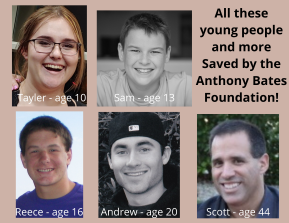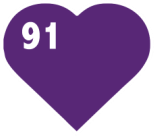Sudden Cardiac Arrest in the young is a public health problem with a solution!

Sudden Cardiac Arrest (SCA) is the leading cause of death in young athletes during sports. Major medical organizations agree on heart screening for early detection of heart conditions. The methods, however, remain debated.
The Parent Heart Watch website reports alarming data. They report that youth lost to SCA from an undetected heart condition is equivalent to nearly one youth every hour, daily, every year in the United States. 1 in 300 youth can have an undetected heart condition. The majority of these deaths can be prevented with regular, ongoing screening.
Prevention should include a detailed medical history at regular well-child visits, life- saving heart screenings, and follow up care. The importance of regular AND follow-up screenings should be stressed. This is not a one and done event.
The American Academy of Pediatrics (AAP) and Parent Heart Watch recommend and advocate for the heart screening of all children, whether they engage in organized sports or not. The New screening guidelines can be viewed here.
In Arizona, another advocate and proactive champion for prevention of SCA through regular screening is Sharon Bates, founder and CEO of the Anthony Bates Foundation (ABF). The ABF schedules ongoing screening events throughout the valley and across the state. Noteworthy, the ABF exceeds the national screening recommendations placing them at the fore-front of bridging the gap between evidence, policy, and practice.
Facts About SCA
- The heart suddenly stops beating, stopping blood flow to the brain and other vital organs.
- It affects young athletes AND healthy children and adolescents who don’t participate in organized sports.
- It is fatal if not treated immediately. Cardiopulmonary Recuscitation (CPR) should be started immediately, activating an emergency action plan, and using an automated external defibrillator (AED) used within 5 minutes.
- Heart conditions can change or evolve over time, meaning that a once normal heart can develop disease as the child ages. On going screening is essential.
- Any child having symptoms should be screened every year. ABF refers abnormal screening tests to the family doctor or Primary Care Physician (PCP.) If warranted, the PCP will make referrals to a cardiologist.
- Electrical heart disease or heart rhythm problems
- Structural disease of the heart muscle or of the arteries that supply the heart with blood
- A sudden blow to the chest, infection of the heart muscle, electrocution, recreational drug use.
- Regular well-child visits with your family doctor
- Family history of heart disease
- Sports Pre-Participation Evaluation
- Athlete/Student Cardiovascular Questionnaire, blood pressure checks, ECG/ EKG (electrocardiogram), ECHO cardiogram (Ultrasound) (standard testing at ABF screening events)
- Community-based CPR and AED training
- AED placement on school grounds, near athletic and training fields, and in public places where children play
- ALL children should be screened for heart problems, not just young athletes who need sports physicals. Screening should be incorporated into regular well-child visits, at least every two to three years, supporting the need for and importance of on-going, follow-up screenings.
- ALL elementary, middle school and high school kids should be screened whether or not they are playing sports.
- Consider screening children who had COVID-19 infection.
- Call ABF to host a screening event at your location.
- Or schedule your child’s screening at an ABF event near you.
- ALL children should be screened at regular, routine well-child visits, and every year for heart-related conditions that can lead to SCA.
- A detailed medical and heart conditions history, and physical examination should be required.
- An ECG/EKG and/or ECHOcardiogram, read by a pediatric cardiologist is recommended (Standard at an ABF screening event).
Referral to family doctor or PCP, first. Then if warranted, PCP will refer patients to a
- specialist when indicated.
- Repeat heart screening at least every 2-3 years, yearly is preferred (under 19 years of age.) Adults should be screened every 5 years.
- Identify SCA risk factors, signs and symptoms (Often no warning)
- An Emergency Action Plan, community-based CPR training and AED placements in public areas where children play.
1. https://parentheartwatch.org/aap-heart-screening-policy/ healthychildren.org
2. https://www.ahajournals.org/doi/10.1161/JAHA.119.012235
3.https://publications.aap.org/pediatrics/article/148/1/e2021052044/179969/Sudden-Death-in-the-Young-Information-for-the? autologincheck=redirected#sec-25
4. https://www.anthonybates.org/

 RSS Feed
RSS Feed